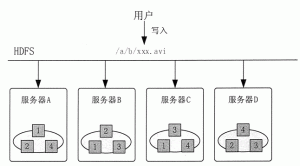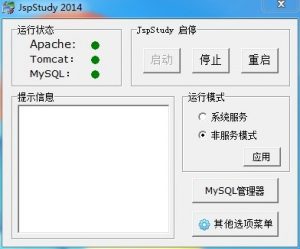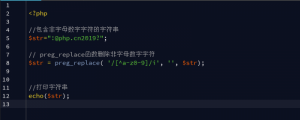如果你想学习或者关心这块内容,那么此文必定会给你带来收获。
首先我不给出依存关系的定义,我给出一个例子。
class Peopel{
public:
People(const std::string & name,const Date& brithday,Image Img)
std::string name( ) const;
Date birthDate( ) const;
Image img( ) const;
...
private:
std::string theName; //名字
Date theBirthDate; //生日
Image img; //图片
};
如果编译器没有知道类string,Date和Image的定义,class People是无法通过编译的。一般该定义式是由#include包含的头文件所提供的,所以一般People上面有这些预处理命令
#include <string>
#include "date.h"
#inblude "image.h"
class Peopel{
public:
People(const std::string & name,const Date& brithday,Image Img)
std::string name( ) const;
Date birthDate( ) const;
Image img( ) const;
...
private:
std::string theName; //名字
Date theBirthDate; //生日
Image img; //图片
};
那么这样People定义文件与该三个文件之间就形成了一种编译依存关系。如果这些头文件任何一个文件被改变,或这些头文件所依赖其他头文件任何改变,那么每一个包含People类的文件就需要重新编译,使用People类文件也需要重新编译。想想如果一个项目包含一个上千的文件,每个文件包含其他几个文件,依次这样下来,改动一个文件内容,那么就需要几乎重新编译整个项目了,这可以说很槽糕了。
我们可以进行如下改动
namespace std {
class string;
}
class Date;
class Image;
class Peopel{
public:
People(const std::string & name,const Date& brithday,Image& Img)
std::string name( ) const;
Date birthDate( ) const;
Image img( ) const;
...
private:
std::string theName; //名字
Date theBirthDate; //生日
Image img; //图片
};
这样只有People该接口被改变时才会重新编译,但是这样有连个问题,第一点string不是class,它是个typedef basic_string<char> string。因此上述前置声明不正确(附其在stl完全代码);,正确的前置声明比较复杂。其实对于标准库部分,我们仅仅通过#include预处理命令包括进来就可以了。
#ifndef __STRING__
#define __STRING__
#include <std/bastring.h>
extern "C++" {
typedef basic_string <char> string;
// typedef basic_string <wchar_t> wstring;
} // extern "C++"
#endif
前置声明还有一个问题,就是编译器必须在编译期间知道对象的大小,以便分配空间。
例如:
int main(int argv,char * argc[ ])
{
int x;
People p( 参数 );
...
}
当编译器看到x的定义式,它知道必须分配多少内存,但是看到p定义式就无法知道了。但是如果设置为指针的话,就清楚了,因为指针本身大小编译器是知道的。
#include <string>
#include <memory>
class PeopleImpl;
class Date;
class Image;
class People{
public:
People(const std::string & name, const Date& brithday, const Image &Img);
std::string name( ) const;
Date birthDate( ) const;
Imge img( ) const;
...
private:
PeopleImpl * pImpl;
}
PeopleImpl包含下面这三个数据,而People的成员变量指针指向这个PeopleImpl,那么现在编译器通过People定义就知道了其分配空间的大小了,一个指针的大小。
public PeopleImpl
{
public:
PeopleImple(...)
...
private:
std::string theName; //名字
Date theBirthDate; //生日
Image img; //图片
}
这样,People就完全与Date、Imge以及People的实现分离了上面那些类任何修改都不需要重新编译People文件了。另外这样写加强了封装。这样也就降低了文件的依存关系。
这里总结下降低依存性方法:
1.如果可以类声明就不要使用类定义了。
2.将数据通过一个指向该数据的指针表示。
3.为声明式和定义式提供不同的头文件。
这两个文件必须保持一致性,如果有个声明式被改变了,两个文件都得改变。因此一般会有一个#include一个声明文件而不是前置声明若干函数。
像People这样定
#include "People.h"
#include "PeopleImpl.h"
People::People(const std::string& name, const Date& brithday, const Image& Img)
:pImpl(new PersonImpl(name,brithday,addr))
{ }
std::string People::name( ) const
{
return pImpl->name( );
}
而另外一种Handle类写法是令People成为一种特殊的abstract base class称为Interface类。看到interface这个关键字或许熟悉C#、java的同学可能已经恍然大悟了。这种接口它不带成员变量,也没有构造函数,只有一个virtual析构函数,以及一组纯虚函数,用来表示整个接口。针对People而写的interface class看起来是这样的。
class People{
public:
virtual ~People( );
virtual std::string name( ) const = 0;
virtual Date brithDate( ) const =0;
virtual Image address( ) const =0;
...
};
怎么创建对象呢?它们通常调用一个特殊函数。这样的函数通常称为工厂函数或者虚构造函数。它们返回指针指向动态分配所得对象,而该对象支持interface类的接口。
class People {
public:
...
static People* create(const std::string& name,const Date& brithday, const Image& Img);
};
支持interface类接口的那个类必须定义出来,而且真正的构造函数必须被调用
class RealPeople:public People{
public:
RealPeople(const std::string& name,const Date& birthday,const Image& Img)
:theName(name),theBrithDate(brithday),theImg(Img)
{}
virtual ~RealPeople() { }
std::string name( ) const;
Date birthDate( ) const;
Image img( ) const;
private:
std::string theName;
Date theBirthDate;
Image theImg;
}
有了RealPeople类,我们People::create可以这样写
People* People::create(const std::string& name, const Date& birthday, const Image& Img)
{
return static_cast<People *>(new RealPerson(name,birthday,Img));
}
Handle类与interface类解除了接口和实现之间的耦合关系,从而降低了文件间的编译依存性。但同时也损耗了一些性能与空间。
联系信息:邮箱aoxolcom@163.com或见网站底部。



















请登录后发表评论
注册
社交帐号登录